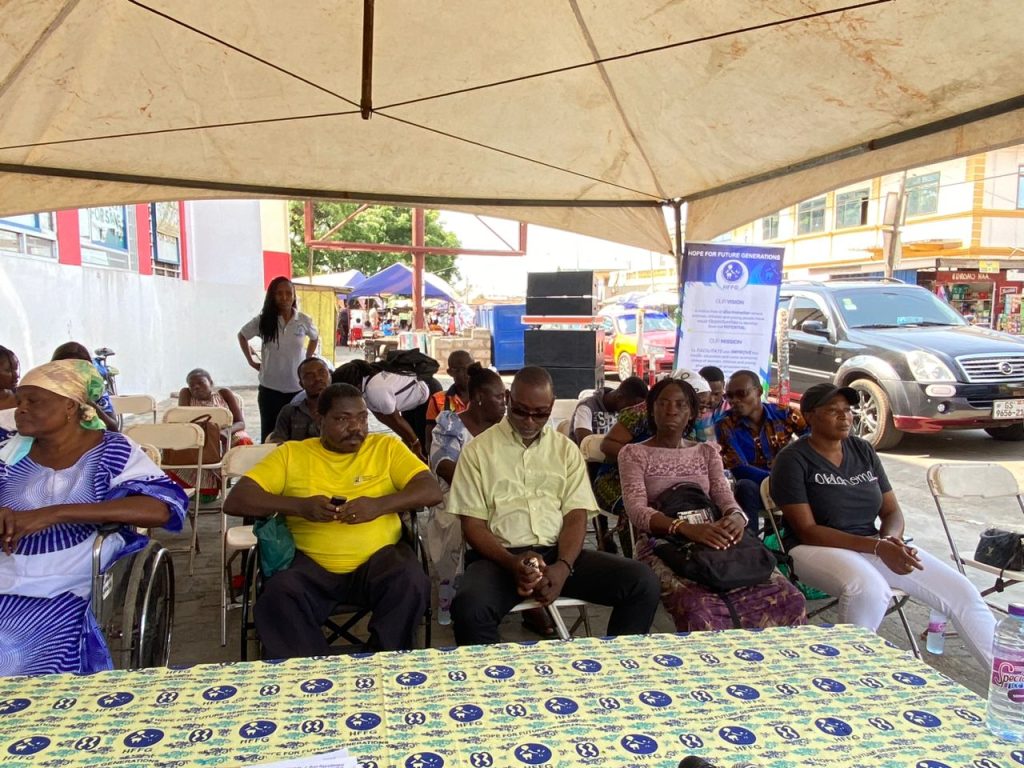By Edward Dankwah
Accra, Dec 13, GNA – Families of Persons Living With Disability (PWD) should be the first line of support, dignity and protection, Mrs Nancy Ansah Cobbah, Director of Programmes, Hope for Future Generations (HFFG), has said.
She said everyone belonged to a family, and that families were expected to provide the needed support for their PWDs, for neighbours to also see them as human beings with rights and dignity.
Mrs Cobbah made these remarks during a HFFG and PsyKForum’s project event, which sought to implement Social Behaviour Change and stigma reduction for mental health and disability inclusion, as part of the celebration of the International Day of PWDs.
The celebration was to promote an understanding of disability issues and mobilise support for the dignity, rights, and well-being of PWDs, including those with mental health conditions, and demand a dialogue around Sustainable Development Goals 8 and 10.
Mrs Cobbah said family members tended to maltreat their relations with disability at home and advised them to put a stop to such acts, as they had equal potential as everyone.
She also advised families and the public to call PWDs by their names rather than calling them by how they looked, because such behaviours intended to affect them mentally and emotionally.
Mrs Cobbah said there was the need for Churches and other institutions to make their buildings disability friendly and eliminate issues of neglect and stigmatisation against them.
“If possible, Churches must also have sign language interpreters for the deaf and dumb, rumps for the crippled and others, so that when they happen to find themselves around, they will feel welcomed,” she added.
She said there were laws and bye-laws that protected PWDs, but implementation of these laws and policies were issues that needed to be addressed.
“We want to call on the law enforcement agencies to ensure that our laws are strictly adhered to and implemented,” she said.
Mrs Cecilia Senoo, Executive Director, Hope for Future Generations, said the Ministry of Gender, Children and Social Protection in 2014 estimated that 20 per cent of Ghanaians had some form of disability.
She said, “According to the Ministry of Health, this number continues to rise due to demographic trends and increase in chronic health conditions, among other causes.”
Mrs Senoo said stigma and discrimination, negative attitudes and harmful traditional and cultural practices continued to exist due to lack of effective implementation, monitoring and enforcement of laws and policies on disability and mental health.
“If people with disabilities, including people with mental health conditions can enjoy their rights and dignity, including their rights to employment, it is important that relevant policies and laws are enforced in a stigma-free environment at all levels of the country,” she stressed.

Mrs Senoo applauded the Government and all agencies, the private sector, philanthropic organisations, civil society organisations and international development partners for the efforts made over the years to see to the needs and well-being of PWDs, including people with mental health conditions.
Madam Mushura Don Baare, Senior Social Development Officer at La Dadekotopon Municipal Assembly (LaDMA), said they had made amendments to their byelaws to strengthen its resolve to better the lives of PWDs.
GNA